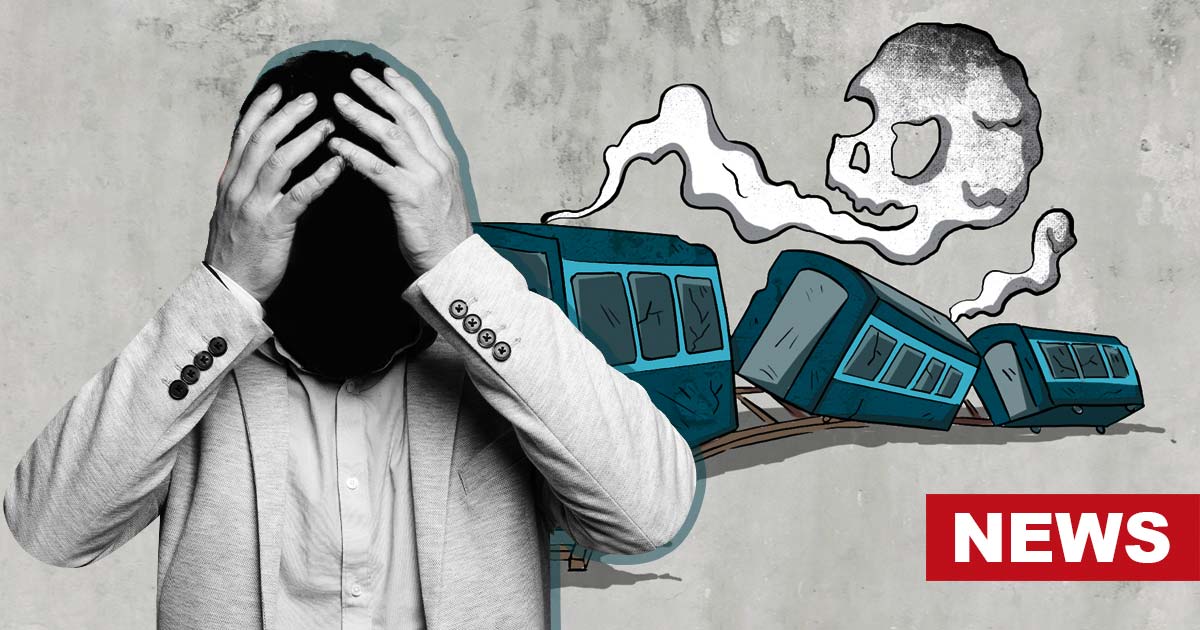Road and rail accidents are traumatic events that can have far-reaching consequences for the individuals involved. While physical injuries are often the immediate concern, it is equally important to recognize and address the potential psychological impact.
Post-Traumatic Stress Disorder or PTSD from accidents is a hidden long-term mental health concern that arises in the aftermath of such harrowing accidents and troubles the affected for life.
Emerging research, in fact, reveals that serious accidents, survivor guilt, and PTSD are intricately linked. For instance, in the recent derailment of the Coromandel Express near Balasore, medical exports reported a surge in PTSD among the survivors.
The Deccan Herald reporting about the survivors wrote that experiencing one of the most dangerous train accidents in India saw many laughing hysterically, continuously staring off into space, or developing chronic sleep problems.
Others, a group of medical experts reported to The Quint, are getting flashbacks of the terrible accident or developing a phobia of traveling in trains. Many of the survivors even manifested survivor guilt and PTSD. They questioned their survival and expressed disappointment at why they lived and not their friends or families who died in the casualty.
Traumatic Accidents And PTSD
Road and rail accidents are sudden and often violent events that can result in life-threatening situations. The individuals involved may witness severe injuries or fatalities (like bodily or traumatic brain injuries), endure intense fear or helplessness, or experience a near-death experience themselves.
These traumatic experiences can trigger the development of PTSD. The most common type includes PTSD after car accidents.
As seen in the case of the Coromandel Express’s survivors, PTSD from accidents may include symptoms like intrusive thoughts or flashbacks of the event, nightmares, hyperarousal, avoidance of triggers associated with the accident, emotional numbness, and difficulties with concentration or sleep. Individuals may also experience heightened anxiety, irritability, and a diminished sense of safety.
Addressing PTSD From Accidents
Traumatic accidents and PTSD can significantly impact a person’s quality of life and functioning. It can interfere with daily activities, relationships, work, and overall emotional well-being. Prompt identification and intervention can mitigate the long-term effects of PTSD.
Following a road or rail accident, immediate medical care should be accompanied by psychological assessments to identify those at risk of developing PTSD.
Treatment options may include trauma-focused therapy, cognitive-behavioral therapy (CBT), and medication when necessary. Peer support groups and counseling services can provide a crucial source of understanding and empathy.
Public awareness campaigns and educational initiatives are essential in highlighting the risk of PTSD from accidents. Improved safety measures, such as enhanced infrastructure, stricter regulations, and public transportation safety protocols, can help prevent accidents and reduce the psychological impact on survivors. Training first responders to provide psychological support in addition to medical care is also vital.
Know More About –
Related Articles –
- 17 Warning Signs Of Complex PTSD (Complex Post-Traumatic Stress Disorder)
- PTSD Research Reveals 4 Surprising Insights You Need to Know
- How Empaths Can Recover From Trauma And PTSD: 7 Healing Strategies




























